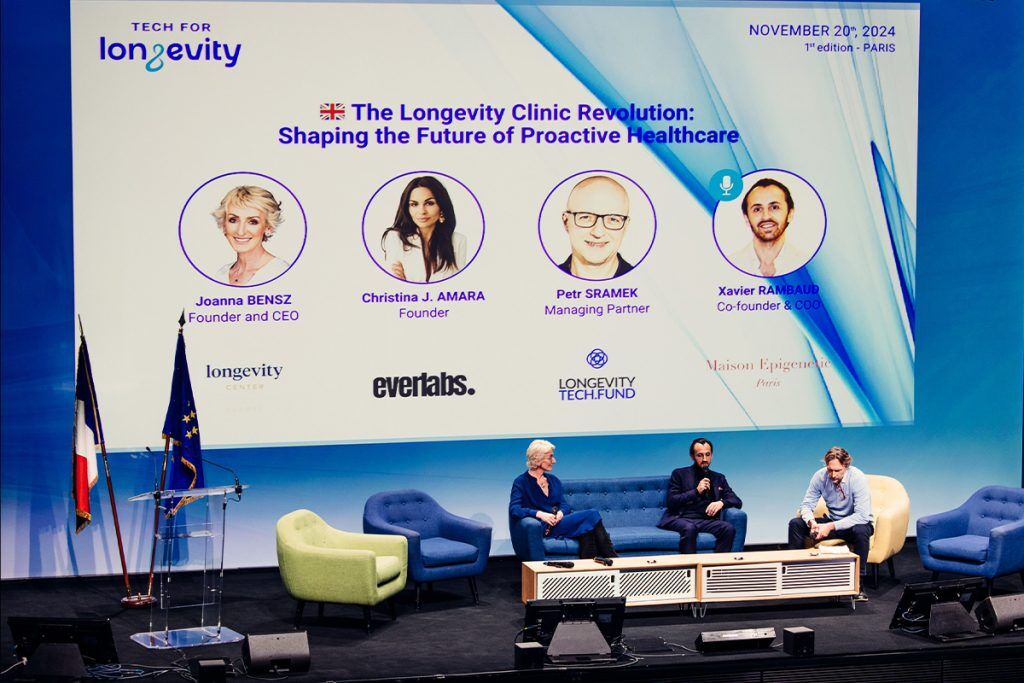Grand Palais will host Europe’s longevity summit as AI and aging science converge on an international stage.
Tech for Longevity will return to Paris this year, making the short journey from Station F to the newly reopened Grand Palais – but the leap in ambition could scarcely be greater. After drawing 1,200 attendees in its inaugural edition in 2024, the event is expanding to become part of the Adopt AI International Summit, with more than 25,000 participants expected over three days from 24 to 26 November.
This shift in venue and scope reflects a field that is accelerating fast, both in terms of research momentum and investment. While last year’s event gathered innovators, academics and entrepreneurs in a start-up-friendly setting, the Grand Palais edition is positioned within a much larger ecosystem of 500 speakers and 250 exhibitors. For longevity, this means visibility within the broader AI conversation – and an opportunity to show how prevention, healthspan and cellular reprogramming are being reshaped by computational power.
Longevity.Technology: The migration from Station F to the Grand Palais is not just a change of postcode but a statement of intent – a reflection of how rapidly the longevity field is accelerating and how central it has become to the innovation agenda. The integration with the Adopt AI Summit is both timely and telling; AI is rapidly becoming the centrifuge that separates promise from proof in longevity, accelerating discovery cycles and reshaping what is scientifically possible. The Grand Palais setting undoubtedly brings scale and spectacle, but the sector’s credibility depends on the science remaining front and centre – longevity cannot afford to be distracted by its own growing fanfare. Europe’s particular strength lies in embedding ethical and regulatory nuance into innovation, and if Paris leans into that advantage, this edition could consolidate not just attention, but authority.
From Station F to Grand Palais
Henri-Nicolas Olivier, CEO and co-founder of Maison Epigenetic, signaled that even as the first event closed plans were already in motion for a larger edition in 2025, one that would move to a bigger venue in order to accommodate an even larger international audience – a promise that is now being realized, albeit with dates adjusted to align with Adopt AI.
The Grand Palais has undergone extensive renovation and now offers 17,000 square meters of exhibition space, with capacity for up to 30,000 visitors. Its location in the centre of Paris, together with the building’s architectural prestige, adds a symbolic dimension – placing the science of aging within one of Europe’s most recognizable cultural landmarks.
AI and longevity converge
Longevity’s pairing with Adopt AI reflects an increasingly close relationship between artificial intelligence and the biology of aging. From drug discovery pipelines compressed from years to weeks, to the analysis of multi-omics datasets for personalized interventions, AI is already shifting the ground beneath geroscience. Reports of AI-discovered compounds showing lifespan extension in laboratory models, or of reprogramming markers accelerated fiftyfold through machine learning platforms, demonstrate how far the technology has moved beyond incremental gains.
For this year’s event, Tech for Longevity will occupy a dedicated demo zone within the Grand Palais, sitting alongside AI for health, finance and industry. The program will highlight epigenetic reprogramming, advanced biomarker tracking, AI-enabled personalization and integration of genomics, proteomics and metabolomics. This convergence reflects a broader trend – aging research is no longer confined to laboratories and clinical cohorts, but is increasingly connected to computational platforms that can model, test and predict at scale.
Market momentum
The event also arrives during a period of extraordinary market activity. Longevity-focused startups attracted $8.5 billion in venture capital in 2024, while consumer spending on wellness reached $1.1 trillion in the United States alone [1]. Analysts forecast the longevity sector to grow from $5.6 trillion in 2022 to $8.5 trillion by 2027 [2] – figures that explain why investors and policymakers alike are paying close attention to this intersection of prevention, technology and demographic change.
Yet, with momentum comes responsibility. The transition from scientific discovery to clinical practice requires rigorous validation and regulatory clarity; Europe’s emphasis on frameworks for equity and access could help guide the global field as it edges toward translation into healthcare systems.

Parisian perspective
That Paris should host a flagship longevity gathering is no accident. France is home to leading research institutions and an innovation ecosystem that spans digital health, biotech and AI; it also carries a cultural philosophy that aligns well with the longevity agenda – not simply extending years, but enriching them. As Henri-Nicolas Olivier put it last year, “the French philosophy of joie de vivre aligns well with the goals of longevity research, focusing on not just extending life, but improving its quality” – a reminder that longevity, at its best, is about healthier decades as much as longer ones.
Toward new horizons
Tech for Longevity’s second edition may be larger, louder and more international, but its true measure will lie in whether it demonstrates how far science and society have come in treating aging as a tractable process. The Grand Palais will provide a fitting stage; the challenge, and the opportunity, will be in shaping longevity not as a promise of more years, but as a vision of better ones.
Main photograph: wirestock/Envato. Article photographs courtesy of Tech For Longevity
[1] https://insider.fitt.co/wellness-consumers-have-1t-to-spend/
[2] https://globalwellnessinstitute.org/industry-research/global-wellness-economy-monitor-2023/

